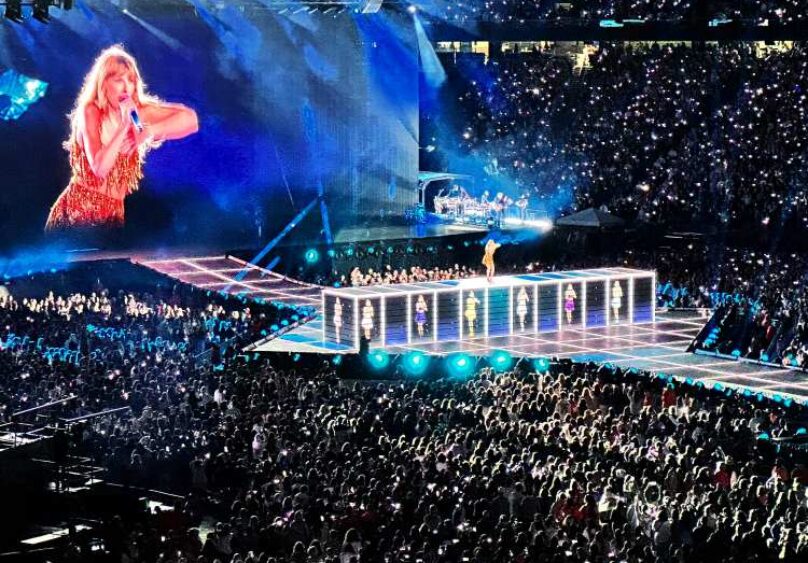UK Festivals Face Tough Year as Costs Rise and Headline Acts Dwindle
Share On
It’s no secret that UK festivals are facing an uphill battle. With rising costs, a shrinking pool of headline acts, and challenges caused by unpredictable audience trends, organisers are now booking years in advance, essentially gambling on which artists will still draw a crowd down the line.
In recent years, the festival landscape has seen a worrying shift. 72 UK festivals cancelled in 2024 alone, and many more are teetering on the brink of financial instability. While larger festivals like Glastonbury continue to thrive, smaller and mid-tier events are struggling to survive, squeezed by skyrocketing production costs and a competitive market for headline-worthy talent.
Festivals Booking Two Years Ahead
Finlay Johnson from the Association for Electronic Music explained, “We’re seeing a trend of festivals booking acts earlier. For example, Primavera Sound announced its lineup in October for a festival in June, meaning negotiations started before the last event even wrapped up.”
This is now the norm. Booking agents are under immense pressure, often given just 48 hours to accept offers for acts. This rush leaves little room for flexibility, and there’s a real risk that festivals may lock in artists who don’t resonate with audiences by the time the event rolls around.
John Rostron, CEO of the Association of Independent Festivals, confirmed, “Pretty much every established festival now has its lineup for the following year announced by November, whereas it used to be January. The timelines have shifted massively.”

Taylor Swift Concert (Stephan Mease, Unsplash)
The Headliner Bottleneck
One of the biggest challenges festivals faces is the lack of headline-worthy acts. With fewer artists capable of drawing massive crowds, established headliners like Taylor Swift, Adele, and Coldplay are dominating the largest stages while mid-level acts struggle to compete.
Kelly Wood from the Musicians’ Union highlighted the widening gap between top-tier and mid-tier artists: “The gap between the top and the middle is really, really stretched. Headliners keep getting bigger, leaving mid-level acts to really struggle.”
This dynamic is causing issues for festivals, which have historically relied on a strong mix of established stars and rising talent to sell tickets. Now, audiences seem to be prioritising “big names,” and smaller acts are being overlooked.
Soaring Costs Add to the Pressure
It’s not just the talent pool causing headaches. The cost of putting on festivals has skyrocketed in recent years. Touring artists are dealing with increased US visa fees, equipment delays at EU borders, and rising costs for crew, lighting, and transport.
For fans, this means higher ticket prices. Kelly Wood noted, “It used to be £60 for a festival ticket. Now it’s more like £250 to £300. It’s a huge jump.”
This has created a perfect storm for smaller festivals. Many can no longer absorb these costs without dramatically increasing ticket prices, which risks alienating their audience. In 2024, several well-loved festivals like Summer Sessions and 2000trees North were forced to shut down due to financial pressures.

Glastonbury Pyramid Stage (Annie Sprat, Unsplash)
Glastonbury Stays Resilient
Despite the challenges, Glastonbury remains an outlier in the festival scene. Tickets for 2024 sold out in just 35 minutes, and the event reported record profits last year. The festival has yet to announce its full 2025 lineup but has confirmed Neil Young and Rod Stewart, maintaining its reputation as a premier event.
However, not every festival is as resilient. Even mid-sized events with loyal followings, like Standon Calling, have struggled to break even, with organisers citing rising costs and the difficulty of securing big-name acts.
Looking to the Future
Some venues are trying to adapt by leaving slots open for last-minute additions or scouting fresh talent early. But with over 100,000 new songs uploaded to streaming platforms daily, predicting which artists will still be relevant in two years is no easy feat.
DJ Paul Rose, aka Scuba, described the challenge as a gamble: “Bookers are essentially making a bet on the next two years and hoping nothing better comes along. It’s not exactly a vote of confidence in the industry.”
Can Festivals Survive?
With more festivals closing and others scaling back, 2025 is shaping up to be another difficult year for the industry. While iconic events like Glastonbury and Reading & Leeds are likely to endure, smaller festivals will need to innovate or risk disappearing altogether.
The UK’s vibrant festival scene has long been a cornerstone of its music culture. But as costs rise and competition for headliners intensifies, the question remains: Can the industry evolve quickly enough to survive?




